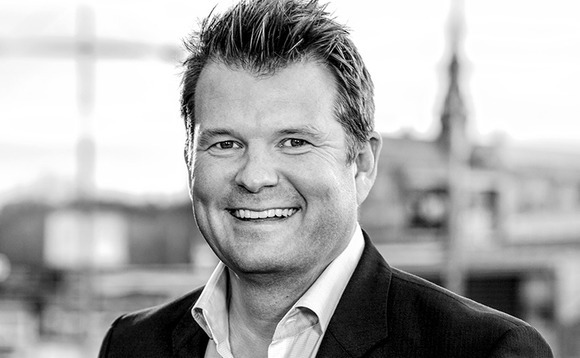
Summa's Reynir Indahl on Nordic fundraising, ESG

Ahead of the upcoming Mergermarket Nordic M&A and Private Equity Forum on 15 March in Stockholm, Summa Equity co-founder and managing partner Reynir Indahl talks to Unquote about fundraising, and value creation in ESG strategies in the region
Nicole Tovstiga: Summa Equity did well in the fundraising process last year, holding a final close for the largest debut fund in the Nordic region since Altor Equity Partners' first fund in 2003. How was the fundraising process?
Reynir Indahl: The fundraising event went very fast. We held a first close in October, a second in November and a final close in February 2017. It was a very quick process down to several factors. First of all, there are more deals and less competition in the lower mid-market sector. Secondly, we assembled a team with a strong track record. And lastly and most importantly, what distinguishes us from other funds in the market is that we are unique in certain areas. We have a thematic approach that focuses on resource scarcity, energy efficiency, ageing demographics and tech-enabled businesses. These are driven by mega-trends representing global challenges, and hence companies that can solve some of these challenges will outperform others and are investment opportunities for the fund.
NT: The fund has made eight investments so far, has the thematic focus of the fund changed in the past year?
RI: The strategy we set out is focused on four themes, with equity tickets in the range of €10-50m. We have kept to this strategy and been very proactive about the companies we are after. This is giving us advantages on the sourcing side and, if anything, we have deployed capital a bit faster than expected; we have invested about half of the fund, bearing in mind we started investing in early 2016.
NT: Given the relative health of the Nordic economies, where is Summa seeking value?
RI: Even in a low-growth environment there are pockets of growth, which are more resilient and supported by strong mega-trends, such as global population growth, resource scarcity, ageing demographics, movement of people, energy efficiency and technology disruption. We have done most of our deals in waste and recycling, and technology. In addition, we see growth opportunities in the salmon farming value chain and have a pipeline in healthcare, especially within genetics and health technology, where we are looking for innovative and differentiated players. As an example, our investment in IVBAR optimises resource use and health outcomes for patients through technology and a data platform, which we believe has the potential to revolutionise healthcare.
NT: What does ESG mean for Summa?
RI: ESG means different things to different funds in the Nordic countries, most of which follow the minimum requirement to comply with the UNPRI [the United Nations-supported Principles for Responsible Investment] to minimise risk in their portfolios. Where we take it one step further is that we focus on creating value through our ESG approach. We start with helping our companies define their purpose, aligning their strategy with this purpose, and improve growth and margins through methods that also benefit customers, society and the environment. We have found this generates motivation in the organisation and improves innovation. Hence, ESG is part of our value-creation approach.
NT: As the first fund in the Nordic region to commit to reporting on the UN sustainable development goals, how does Summa's ESG approach differentiate itself from other Nordic funds?
RI: We want to enable companies to contribute to society, which means they must do more than make money. If a business contributes to society, it will make money and will grow more. It makes a company more future-proof and it won't have risks in this sense as other companies might. To get an organisation and its management to be really high-performing, purpose is very important. Purpose is defined by how a company contributes to society through its core business. We try and make it easy for our companies to formulate purpose, given that they are aligned with the sustainable development goals and given our thematic approach. This drives the energy and operations in our businesses, which makes us attract better talent, keeps employees motivated, more innovative and thus high-performing. We do hope that more companies go in that direction.
Latest News
Stonehage Fleming raises USD 130m for largest fund to date, eyes 2024 programme
Sponsor acquired the public software group in July 2017 via the same-year vintage Partners Group Global Value 2017
Stonehage Fleming raises USD 130m for largest fund to date, eyes 2024 programme
Czech Republic-headquartered family office is targeting DACH and CEE region deals
Stonehage Fleming raises USD 130m for largest fund to date, eyes 2024 programme
Ex-Rocket Internet leader Bettina Curtze joins Swiss VC firm as partner and CFO
Stonehage Fleming raises USD 130m for largest fund to date, eyes 2024 programme
Estonia-registered VC could bolster LP base with fresh capital from funds-of-funds or pension funds









